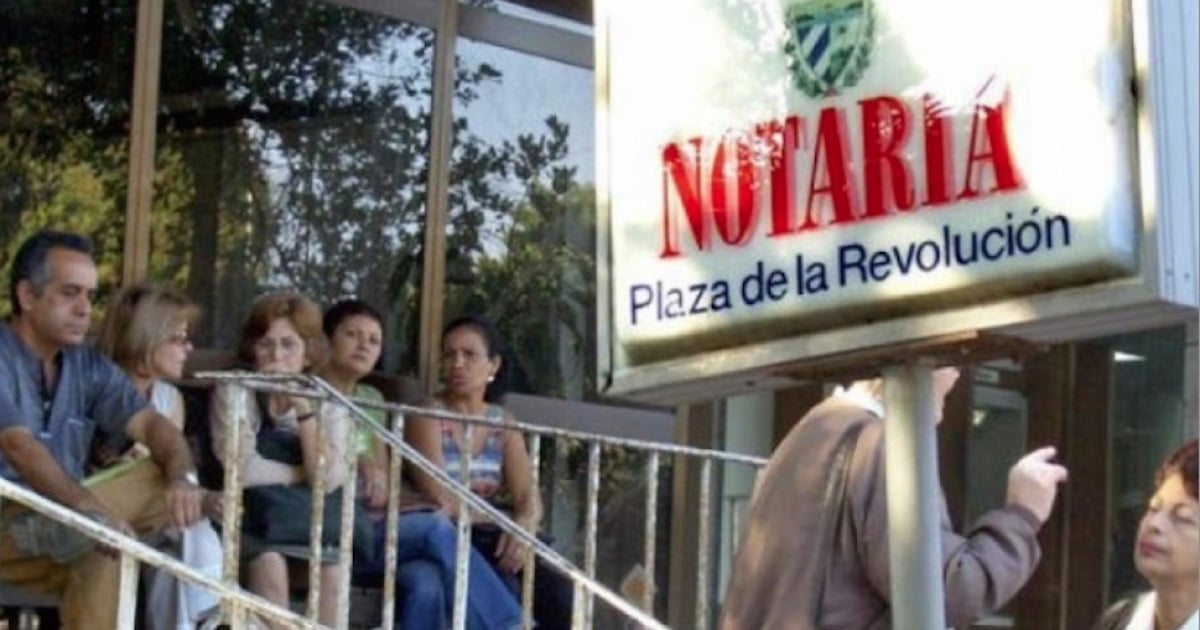The Cuban government has officially sanctioned the use of digitally signed notarial and registry documents for legal transactions, both domestically and internationally. This significant move, announced in the Official Gazette No. 63 on Thursday, marks a major step forward in the digitalization of public services. It promises to ease the burden for thousands of Cubans residing abroad who face complex legal processes from outside the country.
According to the Ministry of Justice's Resolution 284/2025, electronic copies signed by notaries and registrars—such as birth, marriage, death, property, inheritance, or criminal record certificates—will hold the same legal weight as paper documents. This is contingent upon their being properly signed with digital certificates from the National Public Key Infrastructure and bearing the corresponding digital tax stamp.
"Digital transformation places online procedures at the forefront for citizens," stated Prime Minister Manuel Marrero Cruz on his X account (formerly Twitter). He highlighted the enactment of the decree establishing the Digital Government Center and authorizing the rollout of a new public service platform.
Implications for Cubans Abroad
Practically speaking, the new regulation allows Cuban citizens to present certified electronic documents for consular, immigration, judicial, or notarial procedures in other countries. This eliminates the need to wait weeks for the delivery of printed or apostilled versions from Cuba.
Documents can be validated online using a QR code, case number, and PIN through the official Ministry of Justice website, thus expediting verification and reducing the risk of forgery or loss of physical documents.
For the first time, digital issuance of Civil Registry certifications, such as birth or marriage certificates, is officially recognized. Individuals can request them online, even for relatives up to the fourth degree of consanguinity or second degree of affinity, as well as in other cases of legitimate interest or legal representation.
Additionally, Articles 140 and 147 of the Civil Registry Regulations have been revised to accommodate this new digital approach.
Transition to Digital Governance in Cuba
This initiative is part of a broader push towards Digital Governance in Cuba, underpinned by the creation of the new Digital Government Center and the "Soberanía" platform, which will centralize online public services and procedures.
Although officially touted as a step toward administrative efficiency and transparency, this decision could signify a turning point for many Cubans in their interactions with the Cuban state, enabling them to handle crucial procedures from anywhere in the world, including countries without active embassies or with overwhelmed consular services.
With over two million Cubans living outside the island, this measure could bridge gaps, reduce costs, and shorten wait times, especially for those needing to resolve inheritance issues, validate academic credentials, process permits, or initiate migration processes.
The resolution is set to take effect 30 days after its publication, on August 9, 2025.
MINREX to MINJUS Transition
Just six months ago, the Ministry of Foreign Affairs (MINREX) ceased to provide document legalization services. This responsibility was transferred to the Ministry of Justice, as outlined in Agreement 10034 of the Council of Ministers, published in February 2025.
The decision aims to modernize and unify a process that had been fragmented and overburdened. Ana Teresita González, Director of Consular Affairs, emphasized that the transfer is intended to integrate all phases of the process, from registry entities to law firms and consultancies, without disrupting existing services.
This shift occurred amid growing demand for legalizations, particularly from Cubans seeking to take advantage of nationality laws like Spain's Law of Democratic Memory, which caused significant delays in processing during 2023.
Frequently Asked Questions about Digital Notarial Documents in Cuba
How will digitally signed documents benefit Cubans living abroad?
Digitally signed documents will allow Cubans abroad to handle consular, immigration, judicial, or notarial procedures more efficiently without waiting for printed documents to be mailed from Cuba.
What types of documents can be digitally signed?
Documents such as birth, marriage, death, property, inheritance certificates, and criminal records can be digitally signed and hold the same legal validity as their paper counterparts.
What changes were made to the Civil Registry Regulations?
Articles 140 and 147 of the Civil Registry Regulations were revised to support the new digital issuance of certifications.
